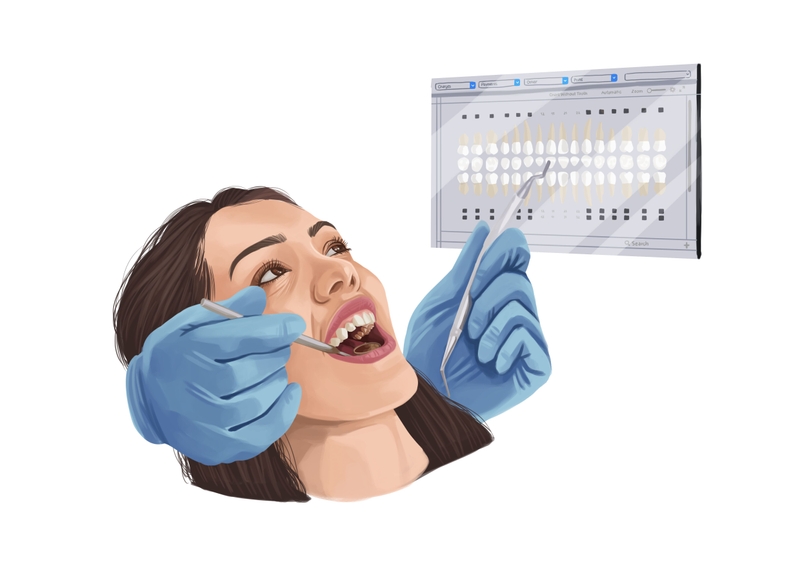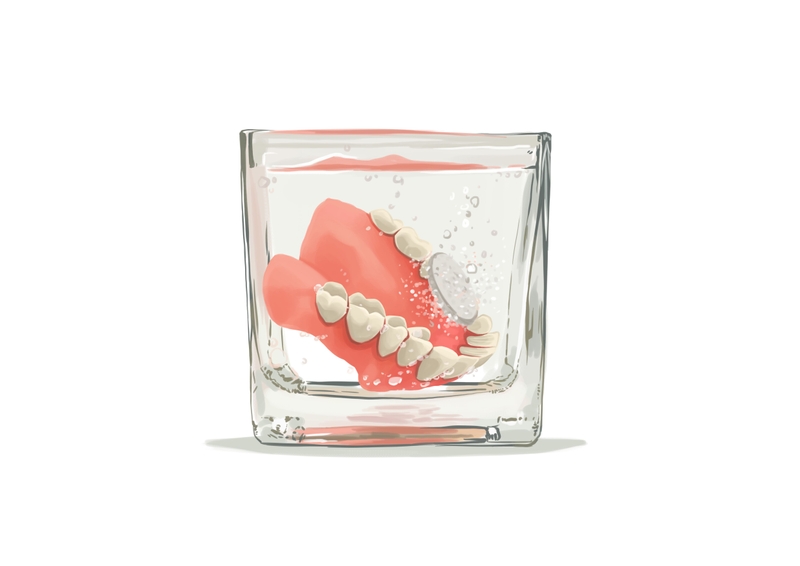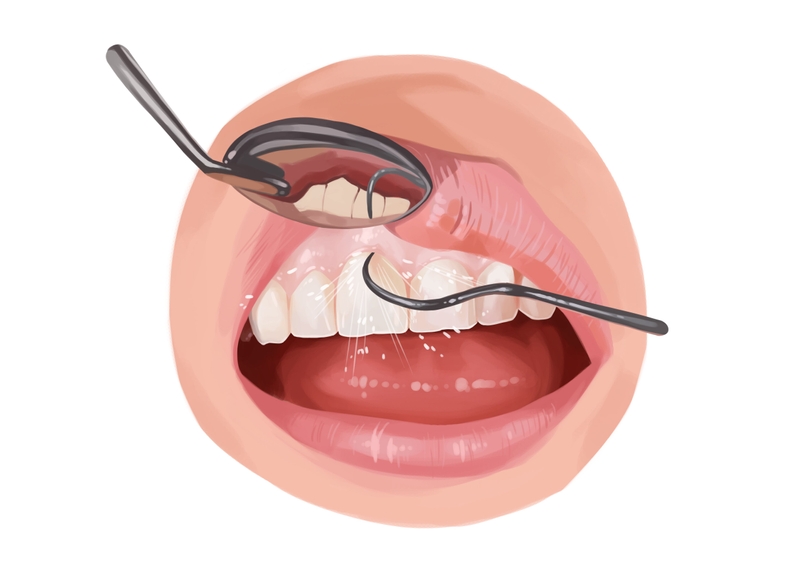- Halitosis is defined as bad breath. There are many causes of this condition, including poor oral hygiene, certain foods, dry mouth, gum disease and other health conditions.
- The most effective way to cure bad breath is to eliminate the root cause.
- Fillings, root canal treatment, scaling and root planing are some of the professional treatments. Home remedies include brushing, flossing and refreshing mouthwashes.
Get rid of halitosis for once. Schedule an emergency dental appointment with Authority Dental. Over 1,500 locations available.
Are you having problems with bad breath? Here's everything you need to know.
Halitosis causes

Picture by Authority Dental under CC 2.0 license
It may be hard to pinpoint exactly what causes bad breath in your case. Often, it is something the patient can easily control.
Lack of proper oral hygiene
Proper oral hygiene includes:
brushing your teeth twice a day or after every meal,
scrubbing the inside of your cheeks and tongue,
flossing between all teeth at least once a day,
rinsing your mouth with water or a mouth rinse,
visiting your dentist for teeth cleaning twice a year.
Many patients brush their teeth and decide they are done with their mouth hygiene. Some neglect to even do that. This allows bacteria to build up and produce a bad odor in the oral cavity.
What’s more, not keeping up with mouth hygiene can cause periodontal issues. Those lead to pockets forming between the teeth and gums, creating even more room for bacteria and a bad smell.
Diet
You are what you eat, or, rather, your breath will smell like whatever you ate. Some foods have strong smells that can contribute to an unpleasant odor coming from your mouth. This isn’t necessarily halitosis but a problem for many patients nonetheless.
Foods that can make your breath smell bad include:
onions,
garlic,
cabbage, and
coffee.
Halitosis can also be caused by crash diets. Especially ones that include fasting or little carbohydrates. This happens because as fats are broken down, they produce ketones - strongly smelling chemicals.
Bad habits
Some habits, like binge drinking and smoking, can make your breath smell bad. Tobacco particularly raises the risk of gum disease. What’s more, smokers have a diminished sense of taste and smell, so they are often unaware of their halitosis.
Oral conditions
Many mouth infections and oral diseases can cause bad breath. The most common culprits include:
cavities,
gum disease, and
Cavities are places where your teeth have decayed. The process itself is called decomposition, and if you’ve ever left an apple around too long, you can imagine the smell is not pleasant. Cavities are also extra places that are hard to clean and perfect for bacteria to feel at home.
Dry mouth is a condition in which your mouth isn’t producing enough saliva. Your spit is very important in controlling your breath, as it constantly washes bacteria out of your mouth. It can be caused by certain medications, gland problems, breathing through your mouth, and not drinking enough water.
Bad breath or a foul taste in the mouth can also indicate gum disease. It happens when too much plaque builds up in the mouth and periodontal pockets form. Bacteria can accumulate in these hard-to-clean pockets, leading to a bad smell.
You may also have bad breath after tooth extraction. That should subside on its own while your mouth heals and when you are able to brush your teeth properly again.
Diseases and illnesses
The following illnesses, or the medications used to treat them, are common causes of bad breath:
sinusitis,
other nose conditions,
gastric reflux,
diabetes,
stomach ulcers,
liver or kidney disease, and
allergies.
Infections and inflammation of the nose may be responsible for bad breath due to the connection to the throat. This is caused by phlegm, or even small bacteria-covered stones, that rest on the back of your throat.
Especially in children, foreign objects can get stuck in the nose or throat. This may also result in phlegm secretion.
Medications that are often prescribed for allergies and depression increase the risk of dry mouth. Some may also break down in the mouth or stomach and release chemicals that escape the body via the breath.
How to cure bad breath?
The first things most patients try are mouthwashes, mints, and chewing gum. These are short-term solutions. There is no magic bad breath cure.
The only way to get rid of bad breath for good is to eliminate the root cause.
Home remedies

Picture by Authority Dental under CC 2.0 license
Since improper oral care is the leading cause of bad breath, that is something you are going to want to target first. Make sure to brush and floss your teeth regularly, use refreshing mouthwashes, and visit your dentist for cleanings and checkups.
Some mouthwashes contain chlorine dioxide and zinc salts. Those are great at removing bacteria and making breath particles less volatile. The best toothpaste for bad breath is one that contains fluoride.
The ADA recommends changing your toothbrush every 3-4 months and after you have been ill. If you find it difficult to keep up daily flossing, invest in a water flosser. A tongue scraper is also a good idea, especially for those with dry mouth or smokers.
If you wear a dentures they should be removed and cleaned nightly.
Keep track of what you eat. After having any smelly foods, brush your teeth. Foods like carrots and apples, on the other hand, boost saliva production. This is because they require a lot of chewing. Sugar-free gum and candies may have a similar effect.
Drink plenty of water to keep your mouth hydrated. Try to limit your caffeine intake. And, most importantly, stop smoking.
If you find that following the guidelines above has not helped over a course of a week, report to your dentist.
Professional treatment

Picture by Authority Dental under CC 2.0 license
When you come in, the dentist will first try to identify why your breath smells the way it does. The best bad breath remedy may be providing you with more specific oral hygiene instructions for your mouth.
If he or she detects a cavity, a filling will be performed. In the case that the decay has reached the pulp, you may also need root canal treatment.
Scaling and root planing is recommended if the issue at hand is periodontitis. If your case is serious, you may be referred to a periodontist or receive a prescription. The latter may also happen if the cause is another dental problem such as dry mouth.
In the case that you wear dentures, they will be properly inspected and cleaned. When fit is not optimal, food particles gather beneath and decompose in your mouth and the appliance.
It may also be that no problem is detected. Your dentist will likely recommend a follow-up with your primary health care provider. The problem may be somewhere else.
FAQ
How to tell if you have bad breath?
The base halitosis symptom is an unpleasant smell. Simple ways to check your breath include cupping your hands and breathing into them or licking your hand. Other people are also likely to point it out if it’s an ongoing issue.
More sophisticated methods include using a halimeter. It is an instrument designed to measure how much volatile sulfur compounds are present in your breath. You can buy them online or at specialist stores.
How is halitosis diagnosed at the dentist’s office?
Most dentists will simply smell your breath. There is a 5-point intensity scale for reference. The dentist may also use a tongue scraper to inspect what can be gathered.
If the dentist suspects the problem is periodontal in nature, most likely, scaling and root planing would be started, along with oral hygiene instructions.
Less often, the dentist will wipe your tongue with a cotton swab. Then, subgingival plaque is collected with a curette. These samples are then placed on a BANA test strip and inserted into an incubator for inspection.
What are the types of bad breath smells?
References
- Periodontal diseases as a source of halitosis: a review of the evidence and treatment approaches for dentists and dental hygienists
- Physiological biochemical, and performance responses to a 24-hour crash diet
- Tooth Decay
- Antimicrobial function of human saliva--how important is it for oral health?
- Salivary gland disorder
- Association between halitosis and mouth breathing in children
- Drug-related oral malodour (halitosis): a literature review
- Efficacy and Safety Evaluation of a Chlorine Dioxide Solution
- Toothbrushes
Peter March, DDS
A tongue scraper tends to be the most effective for removing the film on the tongue.